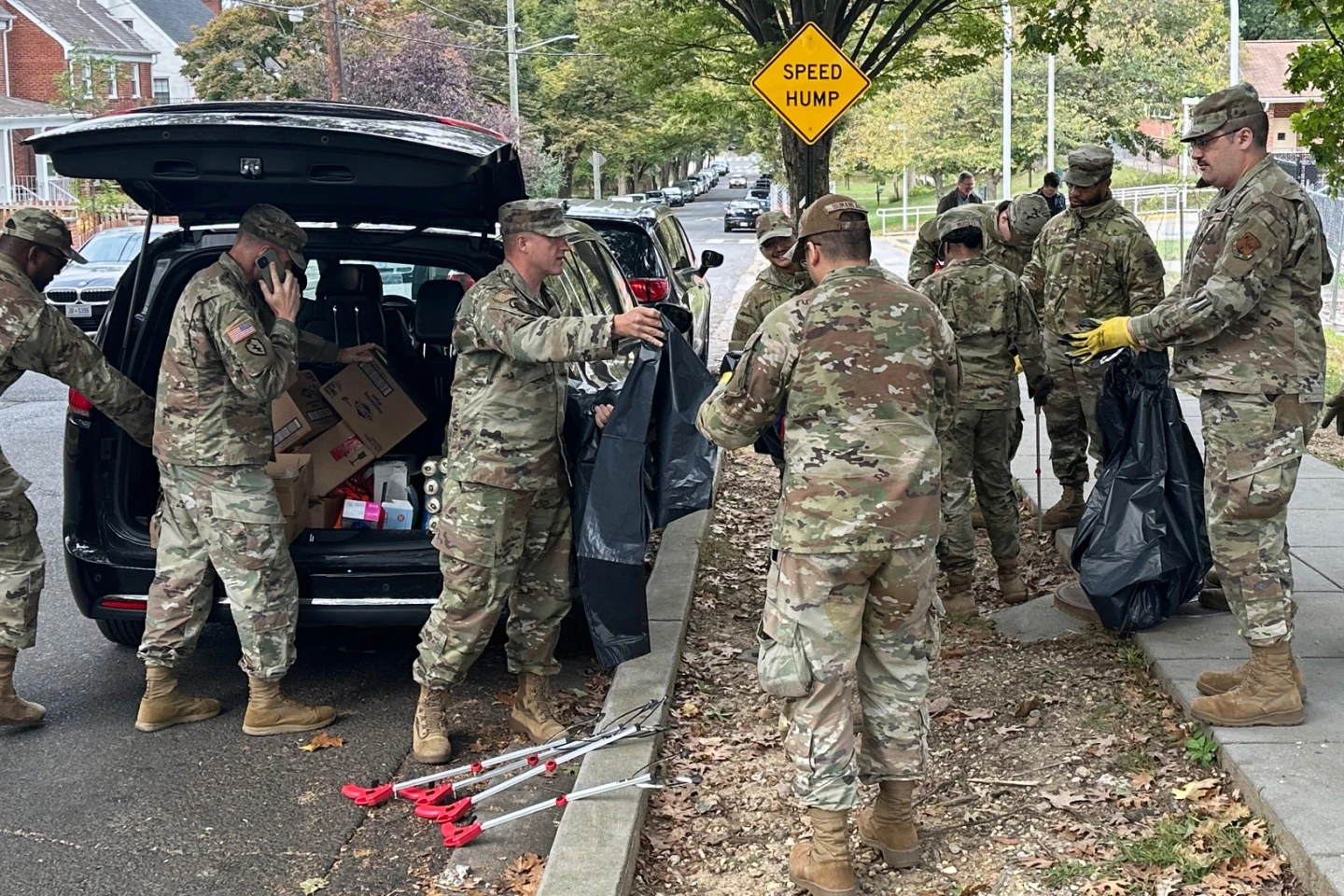National Guard Deployments Face Legal Hurdles Across U.S.
Federal Appeals and Court Orders Create Uncertainty
No National Guard troops are expected to be sent to Portland, Oregon, for at least several days following a temporary decision by a federal appeals court on Friday. Meanwhile, a judge in Washington, D.C., is considering whether to remove more than 2,000 troops currently stationed in the nation’s capital.
The rulings add to a growing list of lawsuits and overlapping court decisions stemming from former President Donald Trump’s efforts to deploy military forces in Democratic-led cities. Troop movements remain blocked in the Chicago area as officials await a possible intervention by the U.S. Supreme Court.
Troops in Oregon Remain in Limbo
A federal appeals court on Friday delayed a ruling issued earlier this week that could have allowed Trump to deploy 200 Oregon National Guard members to Portland. The 9th U.S. Circuit Court of Appeals said it will decide by 5 p.m. Tuesday whether to revisit the panel’s earlier decision, keeping the order on hold until then.
U.S. District Judge Karin Immergut, a Trump appointee, previously issued two temporary restraining orders: one preventing Trump from calling up Oregon’s National Guard and another blocking him from deploying any Guard members to the state after he attempted to send troops from California instead.
Although a 9th Circuit panel lifted the first order earlier this week, the second one remains in effect, effectively halting any deployment. At a hearing Friday, Justice Department lawyers urged Judge Immergut to dissolve the remaining order, arguing it mirrors the reasoning already rejected by the appeals panel. Oregon’s attorneys countered that the orders are distinct and should stand until the appeals court makes its next decision.
Challenge Over Troops in Washington, D.C.
In Washington, D.C., U.S. District Judge Jia Cobb heard arguments Friday on a request from the city’s Attorney General, Brian Schwalb, to order the withdrawal of more than 2,000 National Guard members from the streets. Cobb did not issue a ruling during the hearing.
Trump’s August executive order declared a “crime emergency” in the district, despite Justice Department data showing that violent crime is at its lowest level in three decades. Within weeks, over 2,300 Guard troops and hundreds of federal agents were deployed under the Army secretary’s command.
Schwalb’s office argued that allowing such an occupation would set a dangerous precedent. Government attorneys responded that the president has clear authority over the D.C. National Guard and called the lawsuit a political distraction that undermines crime-fighting efforts. Although the declared emergency ended in September, most of the troops remain. Several states have announced plans to withdraw their units by November 30 unless orders are extended.
West Virginia Deployment Under Scrutiny
Among the states that contributed troops to Washington was West Virginia. The West Virginia Citizen Action Group, represented by the ACLU, has challenged Governor Patrick Morrisey’s decision to send between 300 and 400 Guard members, arguing he overstepped his legal authority.
The group says state law permits out-of-state deployment only under specific circumstances, such as responding to a natural disaster or fulfilling another state’s formal request for assistance. “The governor cannot turn our citizen-soldiers into a roving police force at the direction of federal officials,” the lawsuit contends.
Morrisey’s office maintains that the move was lawful under federal authority, stating that West Virginia “is proud to stand with President Trump.” The case is being heard by Kanawha County Circuit Judge Richard D. Lindsay, who has postponed the hearing until November 3 to allow further arguments on the governor’s legal powers.
Awaiting Supreme Court Action in Chicago
In Chicago, U.S. District Judge April Perry has halted the deployment of National Guard forces until her court or the Supreme Court decides otherwise. Perry had earlier issued a two-week restraining order blocking the move, and both federal and local attorneys have agreed to maintain the pause for now.
Attorneys for the federal government continue to push for an emergency order from the Supreme Court to authorize deployment, while lawyers representing Illinois and Chicago argue that such an action would be “a dramatic step” that could disrupt state authority and local governance.
As multiple courts weigh their next steps, the fate of National Guard deployments across several U.S. cities remains uncertain—caught between executive power and judicial oversight.


